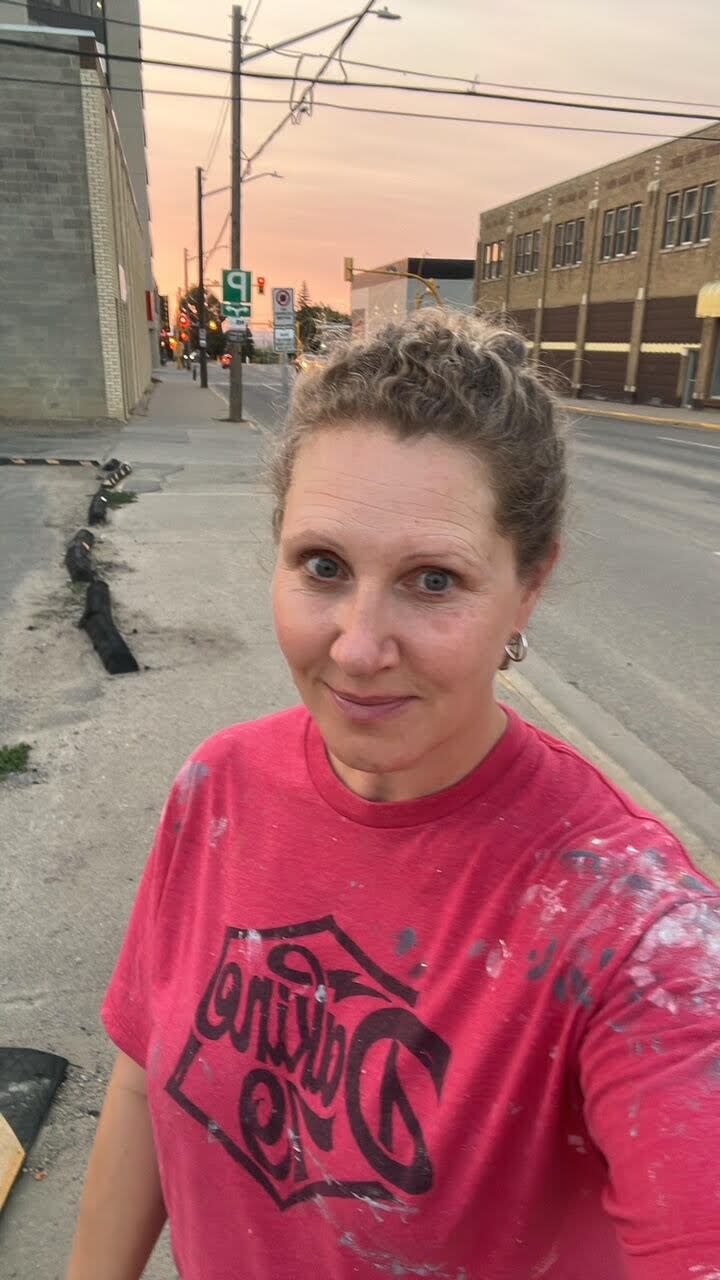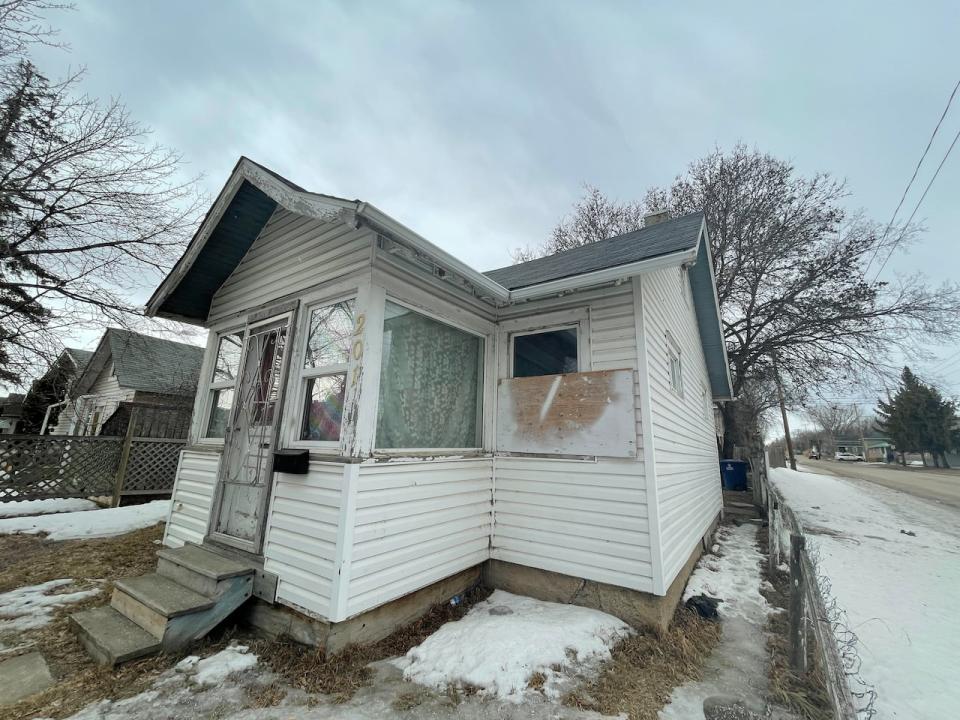Investors, Realtors still waiting to learn whether criminal charges will follow collapse of Epic Alliance

Gary Busch says the Epic Alliance business model smelled like fraud from the start.
Today, people who lost their life savings when the Saskatoon real estate investment company collapsed in 2022 are still wondering whether Busch was right.
Busch is the broker-owner of Century 21 Fusion in Saskatoon. The veteran Realtor became suspicious of Epic's practices in June 2020.
"There's a company and they're buying 20 to 30 houses a month, and these prices are being inflated," he said in an interview. "And I don't know what's going on for sure, but I think there could be some mortgage fraud, or there's some manipulation of facts here."

Gary Busch began raising concerns almost two years before the collapse. (CBC)
The Epic Alliance group of companies abruptly shut down its operations in January 2022. Its investors and property partners learned of the collapse in a 16-minute Zoom call from the company's founders, Rochelle Laflamme and Alisa Thompson.
"Everything is gone. Everything is bankrupt, guys. It's all gone," Laflamme said in the Jan. 19, 2022 video.
CBC reached out to Laflamme and Thompson at the time through their lawyer to speak to the allegations. They did not respond.
However, in the Zoom call to investors, they blamed the collapse on the government regulator.
"Unfortunately, we don't have any good news, we don't have any good updates," Laflamme said in the video.
"The FCAA (Financial and Consumer Affairs Authority) f--ked us, so that's it."
A court-appointed investigator from Ernst & Young concluded in a 2022 report that investors might never know what happened to the money raised by Laflamme and Thompson between 2013 and 2022.
"Based on the unaudited books and records of EA Group, total funds raised from investors amounted to approximately $211.9 million. Due to incomplete books and records prior to 2019, the Inspector has been unable to reach conclusions regarding the use of Investor funds for that period of time," the report said.
The report notes, among other things, that the company's "network infrastructure" vanished from its office at 410 Avenue N South after the collapse.
"The inspector identified an empty server rack where several servers containing the network data for EA Group should have been stored. A drill was located on top of the server rack which appeared to have been used to remove the servers," the report says.
The hundreds of homes Epic bought for investors — and was supposed to manage for them — were turned back to the investors in 2022 when it folded.
Four years after raising his initial concerns, Busch is still waiting to see whether anyone will be held accountable — criminally, or civilly — for what happened.
Lena Jerabek is a British Columbia investor who also wants answers.
"I would like to know where the money went," she said. "There are people that lost their life savings, their retirement. I spoke to a lot of them. I spent hours on the phone with people and investors across Canada."
The 2024 settlement
In April of this year, the Financial and Consumer Affairs Authority (FCAA) reached a settlement with Laflamme and Thompson. They agreed to pay fines totalling $300,000, and are restricted from selling and promoting investment products for 20 years.
The settlement specifically notes that it did not address any potential fraud. Rather, it described the fines as an "administrative penalty" that reflected how Laflamme and Thompson continued to take money from investors after being subject to a cease trade order.
"The Settlement Agreement is silent on the issue of misrepresentation and/or fraud," panel chairperson Karen Prisciak wrote in the 11-page decision.
"It is not within the purview of the Panel to lift the veil of settlement discussions to examine why investor compensation was not part of the Settlement Agreement."
Saskatoon police say its economic crime unit began investigating Epic Alliance in July 2022, and then forwarded its findings to the Crown for an opinion at the end of March 2023.
More than a year later it's not clear whether any criminal charges will be laid.
"We are looking into this but cannot provide a concrete timeline for a response at this time. We will get you a statement as soon as we can," Justice communications officer Kerri Ward-Davis wrote in an email May 29.
'Just didn't feel right'
Busch says that Epic came onto his radar when one of his his agents unsuccessfully made an offer on a house.
"We started looking into it, and the more we looked into it — and I got more addresses and more addresses — I went 'something is off,'" he said.
A troubling pattern of houses valued higher than the market emerged, he said.

Epic Alliance promotion for "Hassle Free Landland Program." (Epic Alliance)
"Saskatchewan's market is very tortoise versus the hare. We are nice up and down, nice and slow, modest dips and rises," he said.
"We're not Toronto. We're not going up 50 per cent in a year. That does not happen here, so it was very out of character that these houses were suddenly worth $50,000 more … it just didn't feel right, didn't look right."
Thompson and Laflamme created Epic Alliance in 2013. It soon evolved into a web of named and numbered companies, including Epic Alliance Real Estate, Epic Alliance Electrical, Epic Accounting and Bookkeeping, and Epic Holdings. It had 118 employees.
Through its network of companies, Epic acted as landlord and property manager for more than 400 rental properties in Saskatoon's core neighbourhoods, including Pleasant Hill, Riversdale and Meadowgreen.
For all its complexity, the company operated on two basic principles:
Raise money from investors across the country to buy homes, offer to make improvements, and sell them for a profit.
Market these same homes to different investors seeking long-term real estate investments. Epic offered to find tenants, act as landlord and provide a 15 per cent guaranteed return.
The wheels fell off the venture when the province's securities regulator became involved.
The company was not licensed to sell investments or offer financial advice, according to the FCAA, which issued a temporary cease trade order on Oct. 21, 2021.
That November, the FCAA held a hearing to consider extending the temporary order. At that time, declarations and support letters for Epic Alliance "indicated that the temporary cease trade order was negatively impacting Epic Alliance's business."
In short, the money coming in no longer kept pace with the money going out.
An investor story
Lena Jerabek and her husband live in New Westminster, B.C., and loaned Epic Alliance $280,000 in 2021 to buy a home in the Meadowgreen neighbourhood in Saskatoon. The idea was to renovate the property and then sell it for a profit.
Everything seemed to be going according to plan until the Jan. 19, 2022, Zoom call when Laflamme and Thompson broke the news about the company's bankruptcy.
"I believe it was probably around February they called investors to their office to come and collect the keys," she said.
"So we didn't need to go through a foreclosure process or anything. They just willingly gave the keys back. So, in my situation, we were fortunate that the property was vacant. It had not been damaged by tenants. It was not renovated, but it was rentable."

Lena Jerabek says investors are still waiting for answers. (Submitted by Lena Jerabek)
The home was eventually appraised at $255,000. Jerabek said the couple is in the final stages of selling the house, "and I will take a loss."
Jerabek said she knows that, in the end, she loaned Epic money for an overvalued property. What she would like investigated is what happened to the millions raised through promissory notes.
Court documents show the company raised a multi-million-dollar pool of capital over eight years by enticing people to give Epic between $50,000 and $500,000 in exchange for a promissory note.
The single-page notes, of which multiple examples were provided in affidavits, were models of simplicity. They featured the loan amount, when the term began and ended, and the interest rate.
The settlement agreement with the FCAA said Laflamme and Thompson sold 96 promissory notes with an estimated minimum face value of $4.3 million.
"That's where I find it really disturbing," Jerabek said.
She said she believes that "they were raising funds from investors basically to pay other investors."
Long-term impact
According to Laflamme and Thompson, Epic Alliance controlled 504 properties in Saskatoon and North Battleford — valued at a combined $126 million — when it fell apart in 2022.
So what happened to the houses?
Busch said about half have sold since then — some for losses in the immediate aftermath of the collapse, others for varying returns as the city's affordable housing inventory tightened.

This house on Avenue L in Saskatoon is one of hundreds that was controlled by Epic Alliance before the real estate investment company collapsed in January 2022. Two Epic employees say many of the houses were uninhabited, with many boarded up. (Dan Zakreski/CBC)
The rest now have renters.
"In the last year and a half, the rents have dramatically increased and so they could be at a point where they're actually making some money on these, or at least breaking even. So if they can tolerate it, they might just be keeping them," he said.
"But for a lot of people, as soon as it got to that break even point, it was like 'We just want out of here,' and they would let them go."
Busch said he hopes for a full accounting of what happened with Epic, and other links in the investment chain.
The court-appointed investigator, for instance, noted that Epic worked with a small group of property appraisers, mortgage brokers and real estate agents.
Until the air is cleared, Busch said questions will still linger with the public.
"For me, it still leaves a bad taste," he said. "For our industry, a lot of people are looking at us saying, 'well, how didn't you catch this, right?'"

 Yahoo News
Yahoo News 
